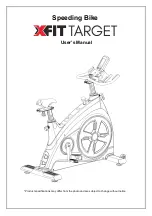
138
NOTE: Pacemaker detector may not operate correctly during the use
of high-frequency (HF) surgical equipment. The disturbances of HF
surgical equipment typically cause false positive pacer detection.
Direct cardiac application:
The display area reserved for the ECG measurement in the
monitoring system screen may not be adequate for displaying the
complete ECG amplitude when measuring ECG direct from the
surface of the heart. Clipping of the signal can be reduced by
adjusting the size of the signal on the screen (for example, from the
default 1.0 to 0.2) in the
ECG
menu.
Impedance respiration specifications
Figure 4b halved
amplitude:
7.0 s (6.1 to 7.5 s)
Figure 4b
normal amplitude:
5.8 s (4.5 to 7.4 s)
Figure 4b
doubled amplitude:
6.1 s (5.1 to 7.0 s)
ST
ST numeric range
-9 to 9 mm (-0.9 to 0.9 mV)
ST numeric accuracy
±0.2 mm or ±10%, whichever is
greater (within the range of -8 to 8
mm)
ST numeric resolution
0.1 mm
Pacemaker detection
Input voltage range
2 to 700 mV
Input pulse width
0.5 to 2 ms
Input overshoot
Specified for both Method A and
Method B required in IEC 60601-2-27
201.12.1.101.13
Overshoot time
< 10 ms
Pacer pulse rejection of
fast ECG signals
2.0 V/s (according to the test defined
in IEC 60601-2-27 201.12.1.101.12)
Measurement range
4 to 120 resp/min
Measurement accuracy
±5% or ±5 resp/min, whichever is
greater
Nomalized respiration
sensing current
≤
5.0 µA
Impedance respiration
carrier frequency
31.25 kHz
Summary of Contents for B20
Page 2: ......
Page 18: ...14 E Entropy module 1 Module keys 2 Entropy connector 1 2 ...
Page 76: ...72 For your notes ...
Page 78: ...74 For your notes ...
Page 86: ...82 For your notes ...
Page 104: ...100 ...
Page 124: ...120 For your notes ...
Page 159: ......
















































